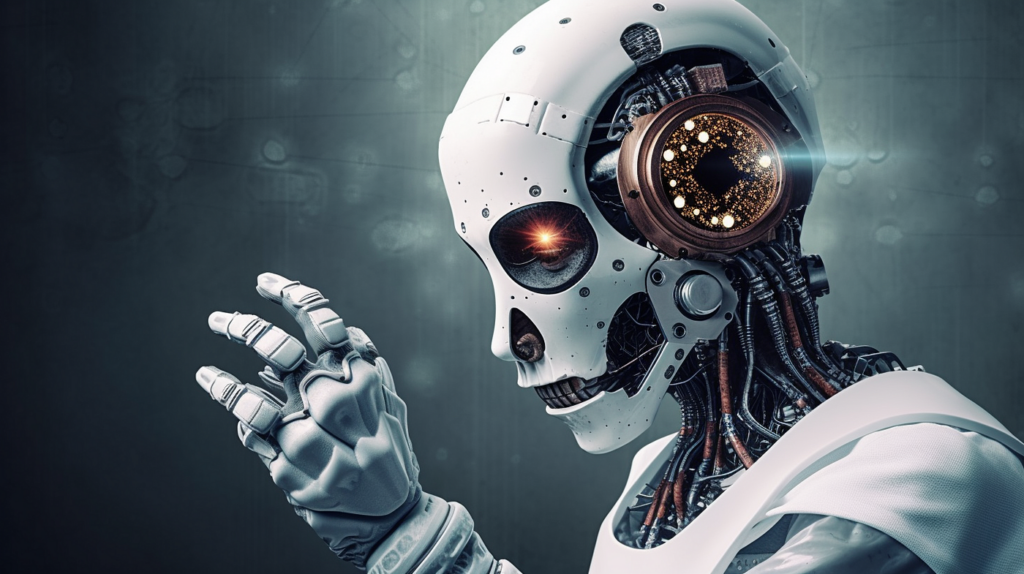Employees from AI companies like OpenAI, Google DeepMind, and Anthropic warn of AI risks, including misinformation, loss of control, and potential human extinction, in an open letter.
A cohort of present and former personnel from artificial intelligence (AI) firms, such as OpenAI, Google DeepMind, and Anthropic, have voiced apprehensions regarding the possible hazards linked to the swift progression and implementation of AI technologies.
The open letter delineates a spectrum of concerns, including the dissemination of false information, the potential relinquishment of authority over autonomous AI systems, and the imminent peril of human extinction.
A “Right to Warn AI” petition has been initiated by thirteen former and current employees of artificial intelligence (AI) developers OpenAI (ChatGPT), Anthropic (Claude), and DeepMind (Google), in addition to the “Godfathers of AI” Yoshua Bengio and Geoffrey Hinton and AI scientist Stuart Russell.
The purpose of the petition is to compel cutting-edge AI companies to grant employees the ability to communicate risk-related concerns regarding AI to both internal and external stakeholders.
A group of current, and former, OpenAI employees – some of them anonymous – along with Yoshua Bengio, Geoffrey Hinton, and Stuart Russell have released an open letter this morning entitled ‘A Right to Warn about Advanced Artificial Intelligence’.https://t.co/uQ3otSQyDA pic.twitter.com/QnhbUg8WsU
— Andrew Curran (@AndrewCurran_) June 4, 2024
In the open letter, the authors explain that AI companies prioritize product development over safety for financial reasons. The signatories assert that the provision of financial incentives undermines the oversight process and that AI companies are subject to minimal legal obligations to divulge information to governments regarding the strengths and vulnerabilities of their systems.
In addition to discussing the present state of AI regulation, the letter contends that the companies’ ability to disclose critical information cannot be relied upon.
They then assert that a more proactive and accountable approach to AI innovation and application is necessary to address the risks posed by unregulated AI, including the propagation of false information and the exacerbation of inequality.
The employees have lodged a formal request for reforms within the AI sector, urging organizations to establish a mechanism through which present and former personnel can disclose concerns about risk.
Further, they recommend that AI companies refrain from implementing non-disclosure agreements that stifle criticism, allowing individuals to voice apprehensions regarding the risks associated with AI technologies.
William Saunders, a former employee of OpenAI, stated:
“Today, those who understand the most about how the cutting-edge AI systems function and the potential dangers associated with their use are not able to share their insights freely because they are afraid of the consequences and non-disclosure agreements are too restrictive.”
The letter is published during a period of heightened apprehension in the AI community regarding the security of exceedingly advanced AI systems. Image generators from OpenAI and Microsoft have already produced photographs containing false information about voting, even though such content is strictly prohibited.
Concurrently, apprehensions have been raised regarding the “de-prioritization” of AI safety, particularly in the pursuit of AGI, which aims to create software capable of emulating human learning and cognition.
OpenAI, Google, and Anthropic are yet to respond to the concerns that the employees have raised. However, OpenAI has emphasized the significance of safety and the appropriate discourse concerning AI technologies. Due to internal issues such as the dissolution of its Superalignment safety team, the organization’s dedication to safety has been called into question.
However, as previously mentioned by Coingape, OpenAI has established a new Safety and Security Committee tasked with making critical decisions and enhancing the security of AI as the organization progresses.
Notwithstanding this, OpenAI management has been subject to criticism from certain former board members for alleged inefficiency, specifically concerning the organization’s safety protocols. Helen Toner, a former board member, revealed in a podcast that OpenAI CEO Sam Altman was purportedly terminated for failing to disclose information to the board.
